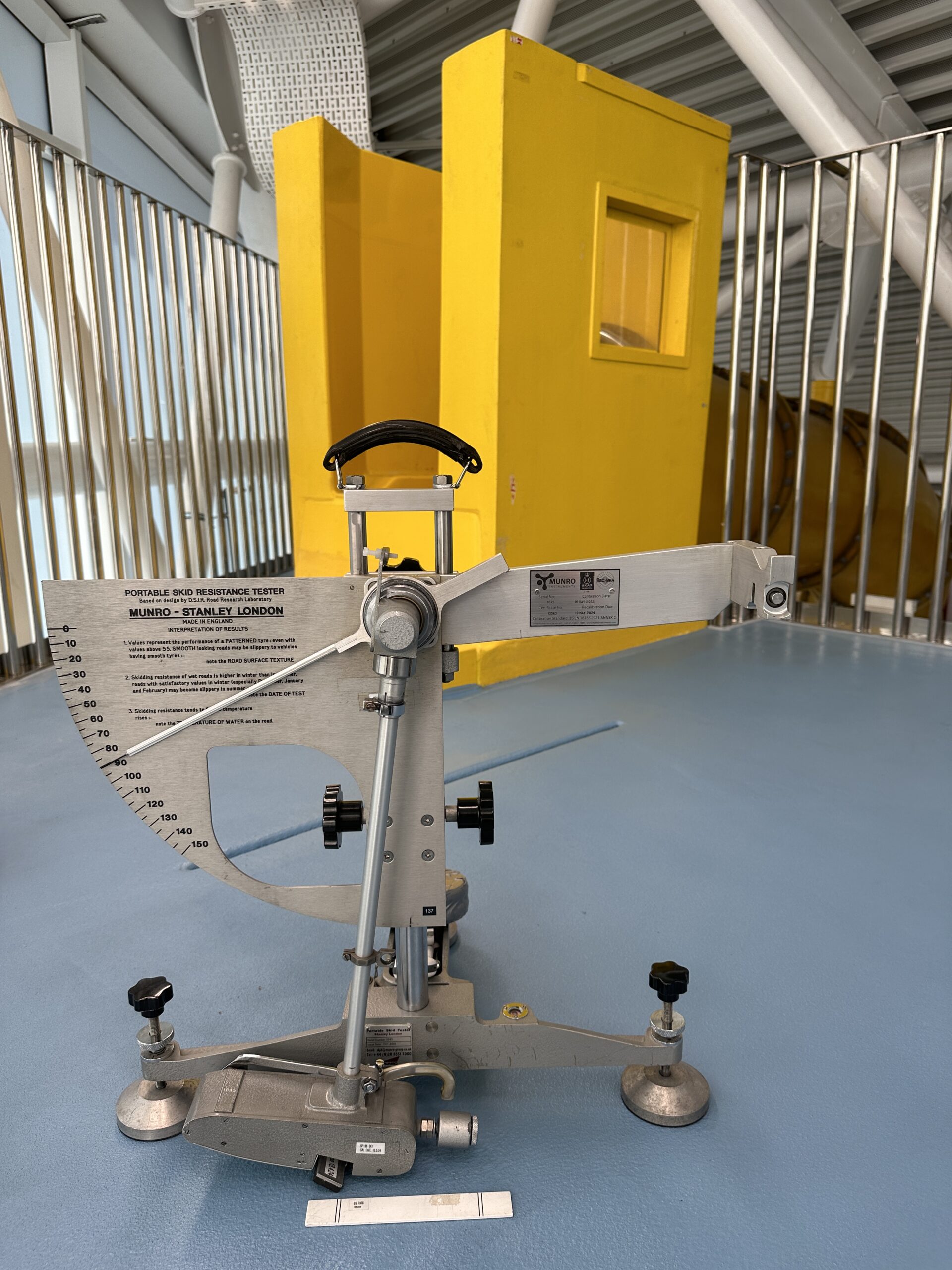Keeping Leisure Centres Safe: The Importance of Pendulum Slip Resistance Testing
Introduction
Leisure Centres are high pedestrian areas with various different facilities such as swimming pools and gymnasiums to spas and wet areas, these facilities are designed for fun and relaxation. However, in the midst of all this enjoyment, safety is paramount. Slip and fall accidents can quickly turn a day of leisure into a day of disaster. This is where pendulum slip resistance testing steps in, providing a crucial layer of protection for leisure centre visitors and staff.
The Significance of Slip Resistance in Leisure Centres
Safety in leisure centres is not just a matter of concern; it’s a fundamental responsibility. With different types of flooring surfaces and constant exposure to water and moisture, leisure centres can be hotspots for slip hazards. Here’s why slip resistance is of utmost importance in these facilities:
- Diverse Surfaces: Leisure centres often feature a mix of flooring materials, from tiles and concrete to vinyl and rubber. Each surface type behaves differently in terms of slip resistance, and a standardized approach to testing is essential.
- Wet Environments: Swimming pools, saunas, showers, and changing rooms are all susceptible to water splashes and spillage. This significantly increases the risk of slips and falls, necessitating careful consideration of slip resistance.
- Heavy Foot Traffic: Leisure centres attract a large number of visitors. The more people frequent the facility, the more crucial it becomes to ensure that the flooring materials can withstand the wear and tear while offering optimal safety.
- Regulatory Compliance: Adherence to safety standards and regulations is not only ethical but often a legal obligation. Failing to maintain proper slip resistance can lead to legal issues and increased liability.
The Role of Pendulum Slip Resistance Testing
Pendulum slip resistance testing is a highly effective and widely accepted method for assessing the safety of flooring surfaces in leisure centers. Here’s how this testing procedure benefits leisure centers:
- Accurate Measurements: Pendulum slip testing equipment provides accurate and repeatable measurements of a surface’s slip resistance. The results are expressed as a Pendulum Test Value (PTV), which helps leisure center managers and owners make informed decisions.
- Preventative Maintenance: Routine testing allows leisure centres to detect and address slip hazards early, preventing accidents before they happen.
- Compliance Assurance: By conducting pendulum slip resistance testing, leisure centres can demonstrate compliance with industry standards and regulations, reducing the risk of legal issues and insurance claims.
- Cost-Effective: Identifying and addressing slip hazards proactively is more cost-effective than dealing with accidents, injuries, and potential legal ramifications.
- Visitor Confidence: A leisure centre that prioritises safety is more likely to attract and retain customers. The confidence visitors have in the safety of the facility can be a significant selling point.
Leisure centres are spaces where people come to relax and enjoy themselves. However, the fun should never come at the cost of safety. Pendulum slip resistance testing is an indispensable tool for maintaining the safety of these facilities, ensuring that visitors and staff can move around with confidence, even in areas prone to moisture and spills.
By prioritising slip resistance testing and acting on its results, leisure centers can create an environment that not only meets safety standards but also enhances the overall experience for their patrons. In the world of leisure, where enjoyment is the top priority, safety should never be far behind, and pendulum slip resistance testing ensures that it never is.

